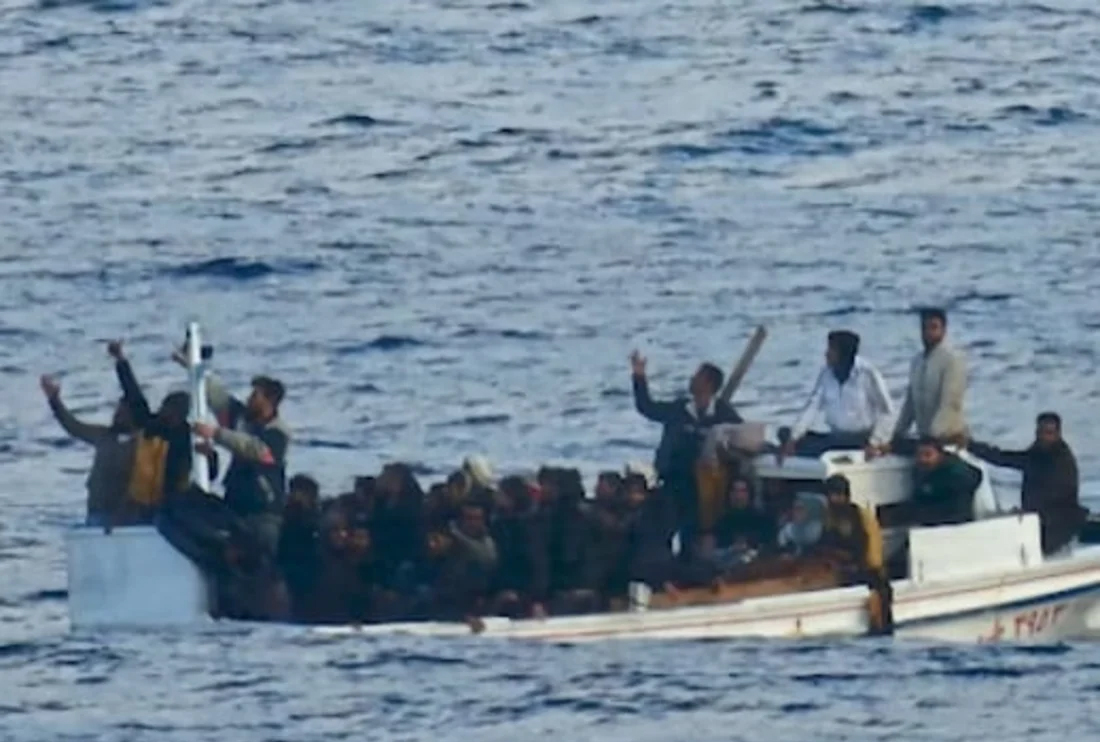A boat with a reported 21 people aboard capsized off the coast of Cyprus on Monday, with seven people having been confirmed as dead so far.
The boat was reportedly located around 30 miles off the coast of Cape Greco.
Two people have thus far been rescued from the sea, with it currently believed that there were initially 21 on board.
One survivor reportedly said that all 21 on board are Syrian nationals who had left the country’s Mediterranean port city of Tartus.
The joint rescue coordination centre (JRCC) has launched a search and rescue mission to locate those who are thus far unaccounted for, with Defence Minister Vasilis Palmas and Justice Minister Marios Hartsiotis having travelled to the JRCC building in Larnaca shortly before 6pm.
The two ministers called a press conference later in the evening, confirming that the two survivors and seven dead found thus far are all Syrian nationals, and that search and rescue operations would continue into the night.
They added that given the developing political situation in Syria, coastguard patrols off Cyprus’ eastern coast have increased in recent days.
“Within the framework of the humanitarian action undertaken by the Republic of Cyprus in the region, this mission is being carried out, and we hope and pray that we will be able to locate other survivors,” he said.
He added that there has been “movement” at sea in recent weeks from undocumented migrants attempting to reach Cyprus from both Syria and Lebanon.
Hartsiotis said the first survivor had been found by chance by a coastguard patrol boat, and that the JRCC had then swung into action in an attempt to locate other survivors.
He added that the two survivors had informed the Cypriot authorities that all the people on the boat were men, but that the survivors as yet “cannot clarify for us precisely and talk about details” regarding the exact number of people on the boat, from where it set sail, and how many days it had been at sea.
“There are eyewitnesses who experienced the events, and we expect at the right time that they will enlighten us and provide all the details which need to be provided,” he said.
In response to a later question, Palmas denied that the boat had been “pushed back” by Cypriot boats, and said there was “no lack of humanity” on the part of the patrolling coastguard.
“On the contrary, the humanitarian sensitivity we have demonstrated … is such that only positive comments should be made about this enormous effort which the Republic of Cyprus is undertaking,” he said.
The JRCC said it had scrambled one warship, two helicopters, one of which belongs to the police, one drone, four port police vessels, as well as ambulance and police personnel to take part in the rescue mission.
It also confirmed that the boat had capsized outside Cyprus’ territorial waters but within the search and rescue area which falls under the Republic of Cyprus’ responsibility.
Hartsiotis on Monday night said this area in some parts of the sea stretches into both Syrian and Lebanese territorial waters.
The capsize of a migrant boat off the coast of Cyprus after a lull in such arrivals in recent months comes as violence re-erupts in Syria’s coastal cities between their Alawite and Sunni Muslim populations.
The British-based Syrian observatory for human rights reported that more than 180 people had been killed in the first two days after fighting broke out on March 6, while Syria’s Sana news agency reported that “remnants of the fallen regime have launched an attack on the national hospital in Latakia.
Meanwhile, state television reported that clashes had also broken out near the city’s Ibn Sina hospital, while the country’s health ministry said attacks had resulted in civilian casualties in both Latakia and the city of Tartus, from whence the boat which capsized off Cape Greco on Monday reportedly set sail.
Bashar al-Assad’s regime in Syria fell in December last year, with Assad himself fleeing to Russia as the Hayat Tahrir al-Sham group swiftly took over the country’s major cities.
Boats carrying irregular migrants had arrived in Cyprus in great numbers during the early part of last year, with many carrying Syrian nationals who had travelled to Lebanon by land and set sail from there.
On April 1 last year, more than 400 irregular migrants had arrived on the island in the space of 24 hours.
President Nikos Christodoulides had at the time said Cyprus was “in a state of crisis” and added that “some transitional decisions may need to be taken domestically, which will not be pleasant, but will be beneficial in the long run.”
Flows to Cyprus were then stemmed by the promise of assistance from the European Commission for Lebanon and the placement of Cypriot police boats off Lebanon’s coast, with the fall of Syria’s Assad regime at the end of last year leading to hope that Syria may stabilise, further bringing numbers down.
Earlier this month, it was reported that around 1,200 Syrian nationals in Cyprus had withdrawn their asylum applications with a view to returning to their country of origin.
Meanwhile, for much of last year, one of the Cypriot government’s flagship policies related to the issue was plans to have some regions of Syria declared safe to return migrants.
However, that plan was scuppered by the European Court of Justice in October, with the court specifying that the designation of a third country as a safe country of origin must cover the country’s entire territory.






Click here to change your cookie preferences